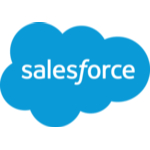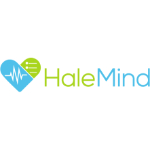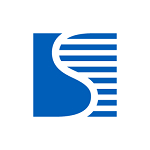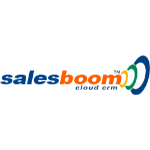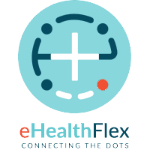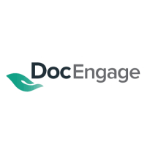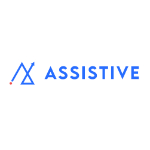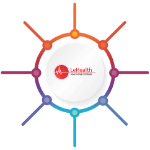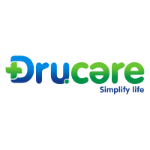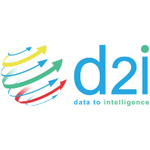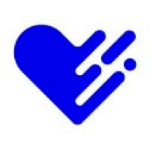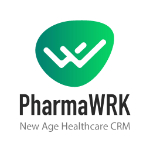TechnologyCounter provides genuine, unbiased real user reviews to help buyers make informed decisions. We may earn a referral fee when you purchase through our links, at no extra cost to you.
List of 15 Best Healthcare CRM Software
Showing 1 - 15 of 45 productsHealth Cloud is a Healthcare CRM Software designed to cater to the needs of startups and SMEs. It is equipped with a range of features and is ideal for use on the web. This robust online Healthcare CRM solution includes Patient Communications and Pa...Read Health Cloud Reviews
Halemind, the innovative software designed to enhance your mind and optimize your performance. With its advanced features and user-friendly interface, Halemind is a tool for boosting your cognitive abilities and achieving your goals. Say hello to a s...Read Halemind Reviews
ScienceSoft is a leading software development company that specializes in providing high-quality, innovative solutions to businesses of all sizes. With a team of highly skilled and experienced professionals, ScienceSoft delivers custom software, mobi...Read ScienceSoft Reviews
Evariant, the innovative software solution designed to revolutionize your healthcare marketing strategies. With its advanced analytics and personalized approach, Evariant helps healthcare organizations connect with patients in a more targeted and imp...Read Evariant Reviews
Salesboom CRM, a powerful is a customer relationship management software designed to enhance your business processes and boost productivity. With streamlined tools and features, Salesboom CRM aims to revolutionize the way you manage and engage with y...Read Salesboom CRM Reviews
eHealthFlex is a software designed to revolutionize the field of healthcare. With its advanced technology and user-friendly interface, eHealthFlex brings a new level of efficiency and convenience to medical professionals and patients alike. Say goodb...Read eHealthFlex Reviews
DocEngage EHR is a top-rated electronic health record (EHR) software co-created with input from over 1000 medical professionals. It addresses the unique challenges faced by doctors and clinic staff, making their work easier and more efficient. It is...Read DocEngage EHR Reviews
Assistive is an innovative customer relationship management (CRM) software that aims to boost sales team performance by facilitating quicker deal closures. Unlike conventional CRM platforms, Assistive streamlines data collection through its user-fri...Read Assistive Reviews
LeHealth is a health software that aims to improve your overall well-being through personalized and user-friendly features. With its innovative design technology, it helps individuals track their health, connect with medical professionals, and make i...Read LeHealth Reviews
Drucare is a healthcare software that is revolutionizing the way medical professionals manage patient care. Designed with the needs of doctors and nurses in mind, Drucare streamlines workflows and improves efficiency, leading to better patient outcom...Read Drucare Reviews
d2i is an innovative software designed to streamline your everyday tasks and boost productivity. With its user-friendly interface features, d2i offers an efficient solution to manage your projects effortlessly. Say goodbye to complex systems and hell...Read d2i Reviews
Healthgrades is a trusted platform that provides valuable insights for patients looking to make informed decisions about their healthcare journey. With a focus on transparency and user-friendly interface, Healthgrades empowers individuals to find the...Read Healthgrades Reviews
Humhealth is a healthcare software that aims to improve the overall quality of patient care. With its advanced features and user-friendly interface, Humhealth streamlines various medical processes and facilitates effective communication between healt...Read Humhealth Reviews
PharmaWRK is a pharmaceutical software designed to streamline and enhance the workflow of the industry. With its user-friendly interface and innovative features, PharmaWRK is a game-changer in the world of pharmaceuticals, helping companies stay ahea...Read PharmaWRK Reviews
BrightInsight is a software that revolutionizes the digital health landscape. It provides a secure and cloud-based platform for the development of regulated medical devices and digital health solutions. With its advanced technology and data-driven in...Read BrightInsight Reviews
- What is Healthcare CRM Software?
- Top Reasons Why Businesses Need Healthcare CRM Software?
- What Are the Top Key Features of Healthcare CRM Software?
- What Are the Top Benefits of Healthcare CRM Software?
- What Are the Steps to Choose the Right Healthcare CRM Software?
- What Are the Types of Healthcare CRM Software for Different Industries?
- What Are the Technology Trends for Best Healthcare CRM Software?
- What Are the Deployment Options for Healthcare CRM Software?
What is Healthcare CRM Software?
Healthcare Customer Relationship Management (CRM) software is an electronic platform employed by healthcare institutions to effectively oversee and maintain their customer interactions and connections. This tool is employed for the purpose of monitoring customer engagements, conducting targeted marketing campaigns, and evaluating the efficacy of marketing efforts.
Additionally, it has the potential to enhance the efficiency of appointment scheduling, facilitate the establishment of payment arrangements, and facilitate the identification of service providers. This program is specifically developed to enhance healthcare practitioners' ability to effectively manage their interactions and collaborations with persons and organizations in the industry.
Healthcare CRM software facilitates the creation and maintenance of precise records pertaining to persons and enterprises, as well as the automated dispatch of reminders for subsequent visits, efficient management of client enquiries, and seamless tracking of payment plans.
Furthermore, this feature enables service providers to strategically focus on particular consumer categories for marketing efforts and evaluate their efficacy. By utilizing this software, healthcare crm systems providers have the ability to formulate marketing plans aimed at enhancing customer loyalty and expanding their business operations, while also identifying potential new clientele.
The establishment of enduring ties between providers and customers facilitates the enhancement of successful transactions and client satisfaction. Healthcare providers have the ability to collect significant client input and monitor outcomes in order to enhance service delivery and uphold customer loyalty.
Top Reasons Why Businesses Need Healthcare CRM Software?
1. To enhance the perceptibility and comprehension of client requirements, it is recommended to amalgamate customer data from various origins.
2. Implementing automation techniques for repeated administrative chores can yield time-saving benefits and enhance operational efficiency.
3. Facilitate the implementation of personalized customer service strategies in order to enhance the overall customer experience by tailoring it to individual preferences and needs.
4. One potential strategy for enhancing customer satisfaction and fostering customer loyalty is to optimize customer service operations.
5. It is imperative to ensure adherence to regulatory frameworks such as HIPAA, GDPR, and other pertinent rules.
6. The system is designed to monitor and record patient appointments, prescribed prescriptions, and other relevant health-related data.
7. One strategy to enhance customer intimacy and engagement is the implementation of a more refined approach to consumer segmentation and targeting.
8. One potential strategy for cost reduction involves the integration of healthcare information technology systems.
9. To enhance cooperation, it is imperative to synchronize patient data across many departments.
10. Enhance the efficacy of collaboration and structure within the referral network.
11. The objective is to enhance the process of resource sharing and markups pertaining to insurance plans and services.
12. One can utilize predictive analytics to proactively anticipate the requirements and inclinations of customers.
13. One potential strategy for enhancing the process of patient onboarding and data collecting involves the implementation of single sign-on functionality.
14. One potential improvement is the implementation of automated appointment reminders and billing systems.
15. Facilitate the implementation of data-driven decision-making processes and analytics inside the organization.
What Are the Top Key Features of Healthcare CRM Software?
1. Patient Database: Healthcare customer relationship management (CRM) software offers a streamlined approach for the management of patient data, encompassing many aspects such as demographic information, insurance particulars, treatment history, and other pertinent data.
2. Appointment Scheduling: The best healthcare CRM software enables healthcare professionals to efficiently schedule patient appointments from any geographical location that has internet connectivity. Furthermore, this system enables patients to conveniently schedule appointments through an online platform.
3. Communications: Healthcare customer relationship management (CRM) software facilitates the transmission of appointment reminders, health-related information, and various notifications to patients through email, text messaging, and push notifications.
4. Billing & Payments: The use of this system facilitates the optimization of the billing procedure, enabling healthcare CRM systems providers to expedite and safeguard the transmission of payments.
5. Reporting & Analytics: The utilization of healthcare CRM software facilitates the generation of informative reports, which serve to assist physicians in monitoring patient involvement, analyzing billing data, and evaluating the efficacy of patient care.
6. Mobile Compatibility: In order to facilitate convenient access to the system for physicians and patients, it is imperative that healthcare CRM software be optimized for mobile devices.
7. Resource Management: Healthcare CRM systems streamline the administration of many resources, including personnel, pharmaceuticals, and equipment, hence enhancing the effectiveness of healthcare practitioners in delivering care.
8. Security & Compliance: The best healthcare CRM software facilitates adherence to regulatory requirements, such as the Health Insurance Portability and Accountability Act (HIPAA), by effectively overseeing patient records through the implementation of robust security mechanisms.
What Are the Top Benefits of Healthcare CRM Software?
1. Improved patient engagement: Healthcare customer relationship management (CRM) software facilitates enhanced patient engagement for healthcare professionals, enabling more effective management of patients' holistic well-being. This entails enhancing the efficiency and personalization of patient visits and service provision.
2. Increased marketing effectiveness: Healthcare CRM systems utilizes data from various sources to offer important insights that enable healthcare providers to enhance their understanding of patients. Consequently, this understanding facilitates the development of more efficient and focused marketing efforts.
3. Improved data management: Healthcare CRM solutions have the potential to enhance their patient data management by utilizing customer relationship management software. This software enables them to efficiently and promptly collect and update patient information. This measure enhances patient confidentiality, while also guaranteeing the precision of payments and the safeguarding of medical records.
4. Streamlined communication: Health care CRM software facilitates seamless communication between healthcare practitioners and patients through various channels such as text messages, emails, and direct messages. This practice facilitates the dissemination of information to all parties involved and enables them to promptly inquire about pertinent matters.
5. Accessibility: The healthcare customer relationship management (CRM) software is designed to be easily available from many locations, allowing healthcare personnel to conveniently access patient records and messages remotely, whether it be from their homes or while on the move. This approach has the potential to yield time and cost savings, while concurrently enhancing work efficiency.
6. Improved customer service: Healthcare CRM solutions has the potential to enhance the customer service experience provided by health care crm providers through the use of automated messaging systems, reminders, surveys, and evaluations. This can potentially contribute to enhanced patient satisfaction and foster increased patient loyalty.
What Are the Steps to Choose the Right Healthcare CRM Software?
Step 1: Determine the requirements of your healthcare institution. When contemplating various aspects, it is important to take into account considerations such as the magnitude of one's practice, the provision of specialized services, and the clientele being served.
Step 2: Involves conducting research on vendors that provide healthcare CRM software. It is advisable to allocate sufficient time for the evaluation of suppliers specializing in the best healthcare CRM software, with the aim of assessing the features they provide and identifying the most suitable option for your medical practice.
Step 3: Involves conducting a comparison of pricing and features. Healthcare CRM solutions is imperative to thoroughly examine the pricing and features of the software in order to ascertain its suitability for the office's requirements and its compatibility with the allocated budget.
Step 4: Involves doing an assessment of customer reviews. Allocate a sufficient amount of time to peruse user evaluations and testimonials in order to acquire a comprehensive understanding of the software's usability and general efficacy.
Step 5: Request a demonstration. After the process of narrowing down the list of potential software providers, it is advisable to initiate contact with them in order to request a demonstration that allows for firsthand understanding of the software's functionality.
Step 6: Involves the process of reaching a conclusion. Once the study has been conducted and a demonstration of the program has been observed, it is now appropriate to make a decision based on educated judgment. Select the Healthcare CRM solutions solution that aligns most effectively with your specific requirements and financial constraints, and thereafter establish a comprehensive implementation strategy in collaboration with your chosen provider.
What Are the Types of Healthcare CRM Software for Different Industries?
There are several types of healthcare CRM software available for different industries. These include the following:
1. Practice and office management systems: The aforementioned software solutions are utilized for the purpose of managing the operations of a medical office or practice. The aforementioned services offer assistance in various administrative duties such as billing, scheduling, and maintaining patient data.
2. Hospital management systems: The purpose of these software systems is to facilitate the management of patient information, medications, test results, and other relevant data within hospital settings. In addition, they are responsible for managing payments, processing insurance claims, and overseeing various invoicing and financial affairs.
3. Clinical research management systems: The purpose of these software solutions is to aid medical researchers in the collection and management of data. One potential area where they can provide assistance is in the organization of patient records, case studies, and clinical trials.
4. Healthcare analytics systems: These systems offer robust capabilities for data processing and analytics. These systems possess the capability to oversee and evaluate patient outcomes, offer valuable insights for corporate operations, and monitor essential metrics of performance.
5. Pharmaceutical marketing systems: Pharmaceutical organizations can utilize software tools to effectively manage campaigns, monitor client feedback, and track sales effectiveness.
6. Electronic Medical Records (EMR) systems: The aforementioned software solutions are employed for the purpose of digitizing health care crm records pertaining to patients. These systems are utilized for the purpose of monitoring and tracking patient data, monitoring clinical progress, and enhancing the operational efficiency of healthcare organizations.
What Are the Technology Trends for Best Healthcare CRM Software?
The technology trends for the best healthcare CRM software are as follows:
1. Automation and Artificial Intelligence: The utilization of automation and artificial intelligence in healthcare businesses facilitates the more effective and accurate management of customer relations, the optimization of customer experience, and the extraction of more profound insights from customer data.
2. Cloud-Based Solutions: Cloud-based healthcare customer relationship management (CRM) systems facilitate the streamlined management of customer health information, monitoring of customer interactions, and secure storage of substantial data volumes within a readily available environment for healthcare enterprises.
3. Mobile Solutions: Numerous Healthcare CRM solutions are increasingly adopting mobile solutions, such as mobile applications and mobile-friendly websites, in order to offer customers immediate access to health records and other pertinent information.
4. Interoperability: Interoperability standards facilitate the optimization of health care crm organizations' relationships with external systems, resulting in enhanced expediency and efficiency in data exchange processes.
5. Security: Security elements, including as encryption, authentication, and access control, play a crucial role in safeguarding the privacy of patient records.
Furthermore, these aforementioned capabilities possess the capability to effectively identify instances of fraudulent activity and mitigate the risk of data breaches.
What Are the Deployment Options for Healthcare CRM Software?
Healthcare customer relationship management (CRM) software has the capability to be implemented either on-premise, as a cloud-based Software-as-a-Service (SaaS) model, or through hybrid systems that include both on-premise and cloud technology.
On-premise deployments provide a higher level of control and customisation, but at the expense of higher initial capital investments and a need for internal technical proficiency.
In SaaS installations, the vendor has responsibility for providing the necessary computation, storage, networking, and application components. Users, in turn, compensate the vendor through a subscription fee, allowing them to utilize the software on a pay-as-you-go basis.
However, users have limited control over the system, since their influence is confined to user-configurable settings. Hybrid deployments entail the integration of cloud and on-premise solutions, thereby capitalizing on the respective benefits of both approaches.
This approach necessitates a higher level of knowledge and financial investment in order to achieve successful integration.
